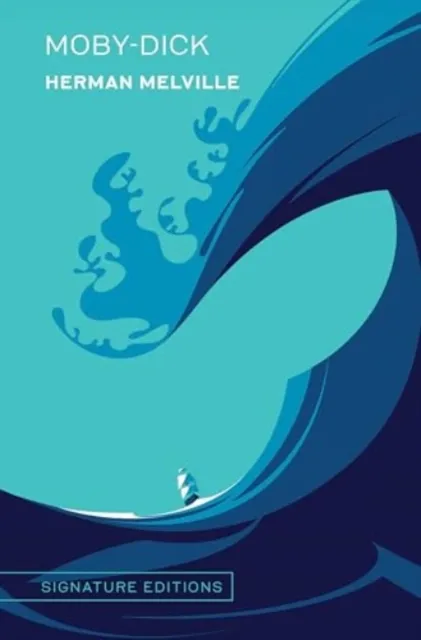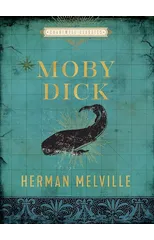Moby-Dick is an 1851 novel by Herman Melville. The story tells the adventures of the wandering sailor Ishmael and his voyage on the whaling ship Pequod, commanded by Captain Ahab. Often considered the embodiment of American Romanticism, Moby-Dick was first published by Richard Bentley in London on October 18, 1851 in an expurgated three-volume edition titled The Whale, and later as one massive volume, by New York City publisher Harper and Brothers as Moby-Dick; or, The Whale on November 14, 1851. This a photo-mechanical reprint of that edition. The first line of Chapter One-"Call me Ishmael."-is one of the most famous in literature. Although the book initially received mixed reviews, Moby-Dick is now considered one of the greatest novels in the English language and has secured Melville's place among America's greatest writers.
Herman Melville
Herman Melville (1819-1891) was an American novelist, poet, and short story writer best known for his novel "Moby-Dick," a complex and symbolic work that explores themes of obsession, fate, and the struggle between good and evil. Melville's writing style is characterized by its rich symbolism, philosophical depth, and exploration of existential themes. His other notable works include "Typee," "Billy Budd," and "Bartleby, the Scrivener." Melville's contributions to literature have had a lasting impact on the development of American literature, particularly in the genre of the novel.




